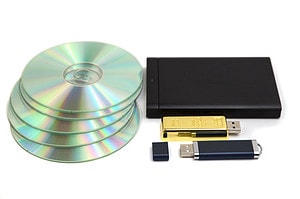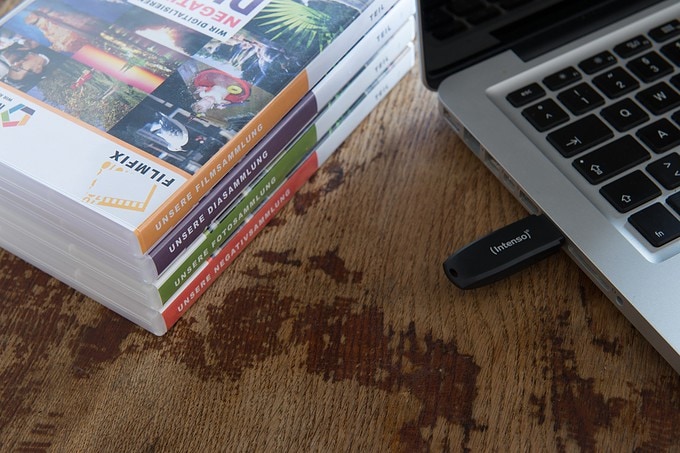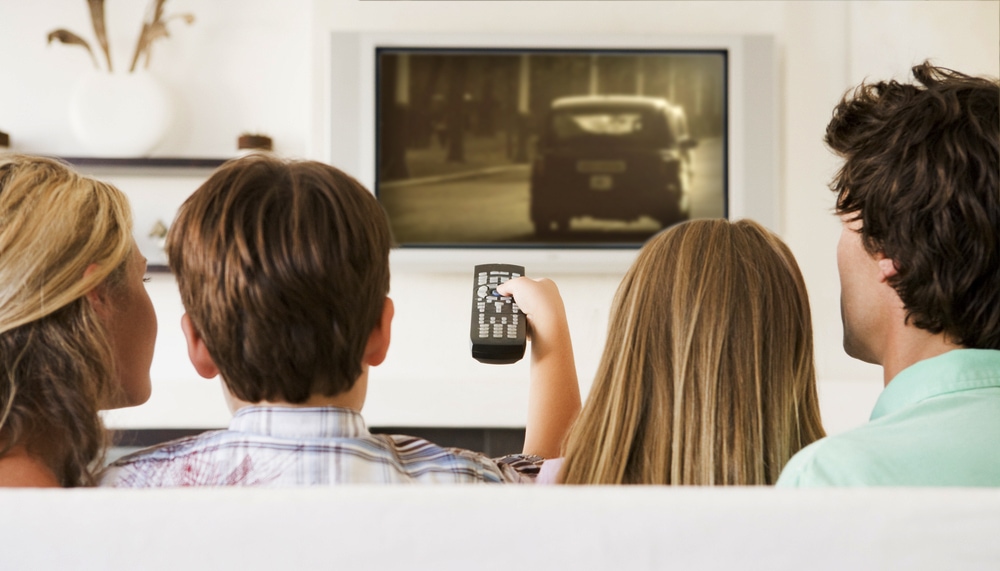
Do you have some personally valuable recordings on cine film reels or VHS tapes and are thinking of digitising them? If so, we at MEDIAFIX can probably guess your next question: How do I archive digital films? How can I save the films, protect them from loss and pass them on to the next generation?
First of all, you have already taken the most important step by wanting to turn your analogue recordings into digital films. Unfortunately cine films and VHS cassettes only lasts a few decades. After that, external influences such as use, heat, humidity and the natural magnetism of the earth begin to cause damage: The film quality deteriorates, the recordings become intermittent and at some point they can no longer be played.
Digitising is inevitably the first step in saving your films. The second question is how to store your digital films. Depending on the order and the customer’s wishes, you will receive your digital films on a USB drive, DVD or hard drive. But as you can already guess: even these storage media are not made to last forever. Archiving digital films therefore requires some knowledge about data media, their handling and their durability.
Three data carriers for archiving digital films

If you store your DVDs well and protect them from heat and sunlight, you can enjoy them for up to 30 years. To be honest, however, it has to be said that heat in midsummer and frequent use will reduce the lifespan in the vast majority of cases. Some manufacturers offer somewhat more expensive DVDs, especially for archiving digital films. For example, the “golden DVD” from Kodak or the “Archival Grade” from Verbatim. These are coated with a special combination of gold and silver to protect the DVD from radiation.
If you archive your digital films on a hard disk, you can expect a lifespan of about 5 to 10 years. Hard disks are considerably more expensive to buy, but they also have by far the largest storage volume. If you want to store your hard disks with digital films safely, you should avoid strong shocks and pressure, as this can destroy the sensitive hard disks. After a few years, you can simply save the digital films to another hard drive with one click and use the old one as an additional backup for as long as it lasts.
USB drives are another popular possibility to archive digital films. They usually last at least 10 years, especially if they are only used for occasional storage and are rarely overwritten. The small size and relative insensitivity make USB drives suitable storage media for backing up digital films and archiving them for the next generation.
Our recommendation: Backup your digital films multiple times
No matter what data medium you choose to have your digital films archived, you should back up your films more than once. It can never be completely ruled out that a storage medium will break or get lost. It is therefore worth investing in one or two more DVDs, USB drives or hard drives – after all, your digital films are unique recordings. You will receive your first data carrier from MEDIAFIX. From there, you should immediately transfer your digital films to further storage media at home in order to optimally secure them.

If you are familiar with using the internet, you can also use online services such as Dropbox. Here, your digital films are archived online and stored in the cloud. A similar service is offered by the Cologne-based start-up Dawawas. If you are not comfortable with these solutions, why not give some DVDs, flash drives and hard drives to close relatives and good friends to back up your digital films. They can back up your digital films by storing them at home or by copying them to their computers.
Saving memories with MEDIAFIX
But before you can archive your films, you first have to bring them into the digital era. MEDIAFIX can help.
So what are you waiting for? Save your unique memories and have your video cassettes and cine films digitised – with us, with a best-price-guarantee.
Do you have any questions? Our friendly customer service will be happy to advise you in a personal conversation.
Simply call 020 3904438-0
Our phone hours are:
Mon-Fri 10.00 a.m. - 3.00 p.m.


